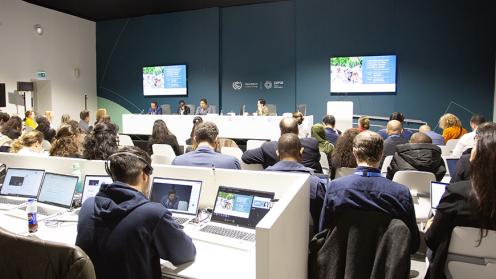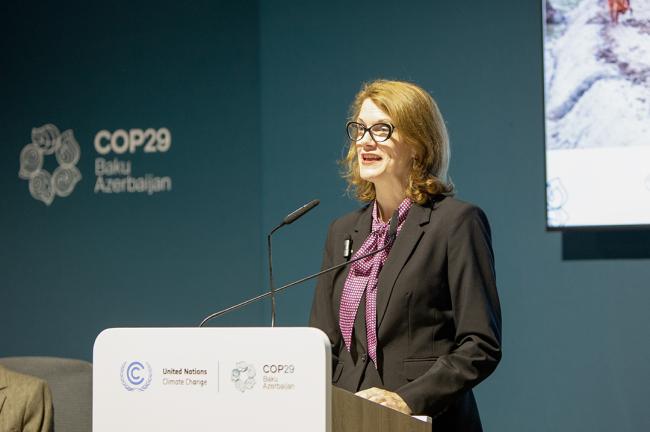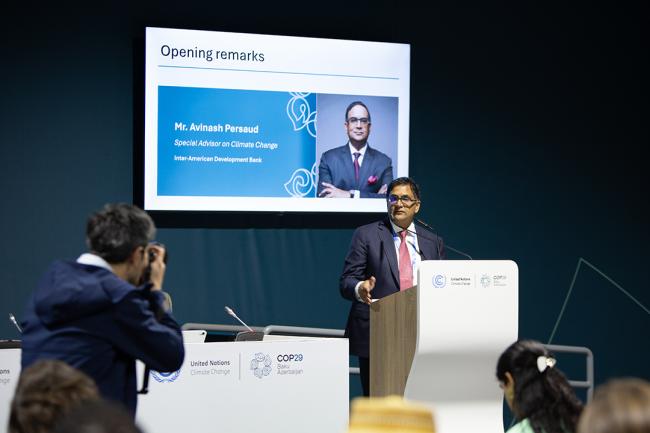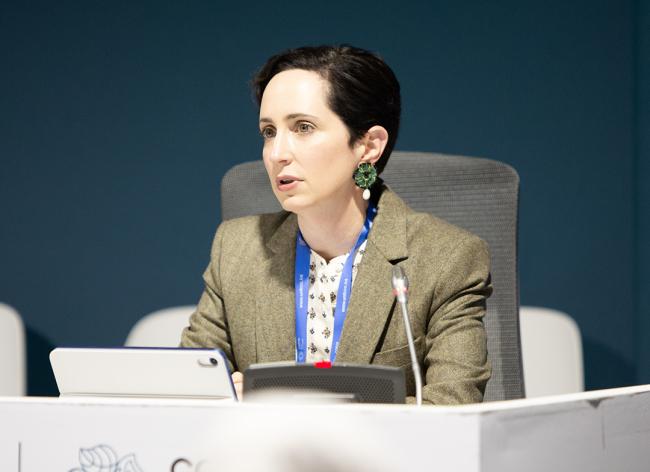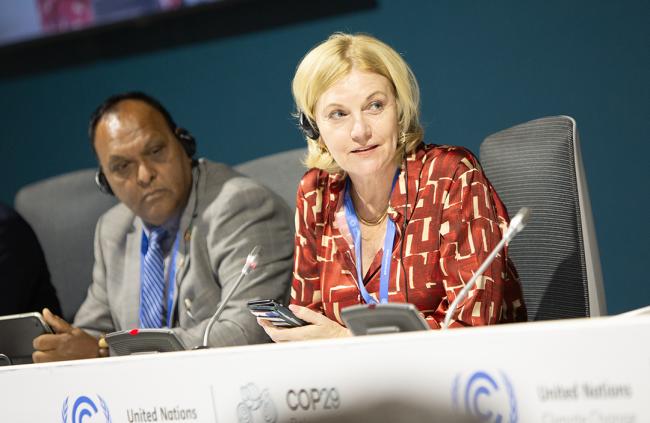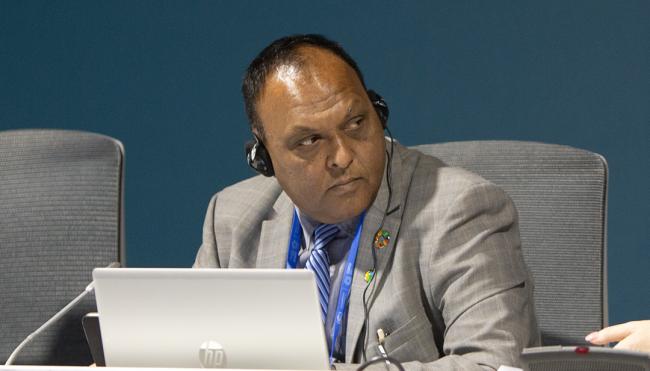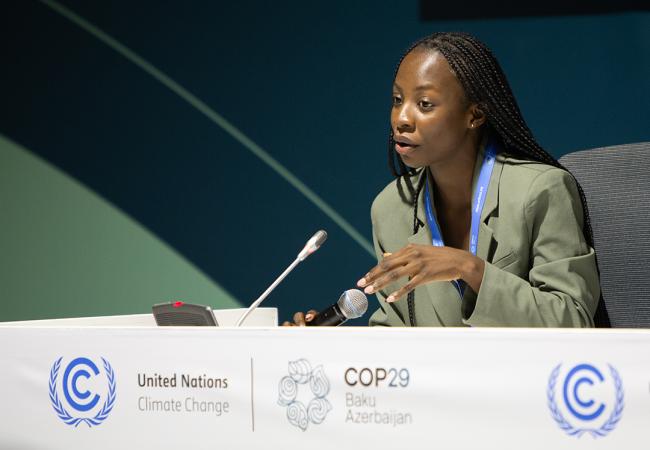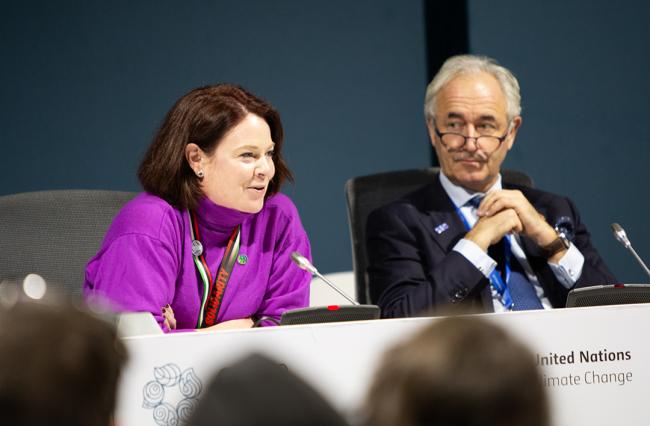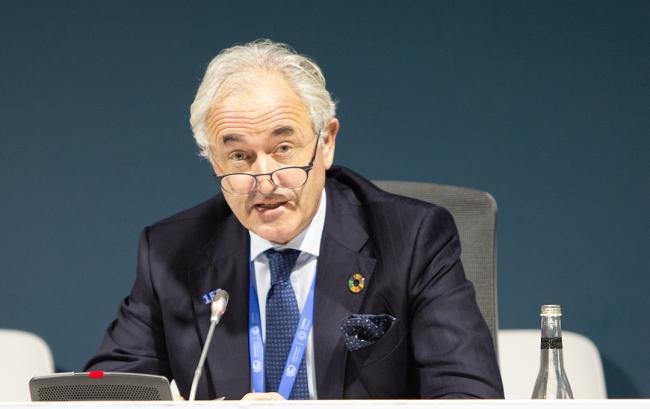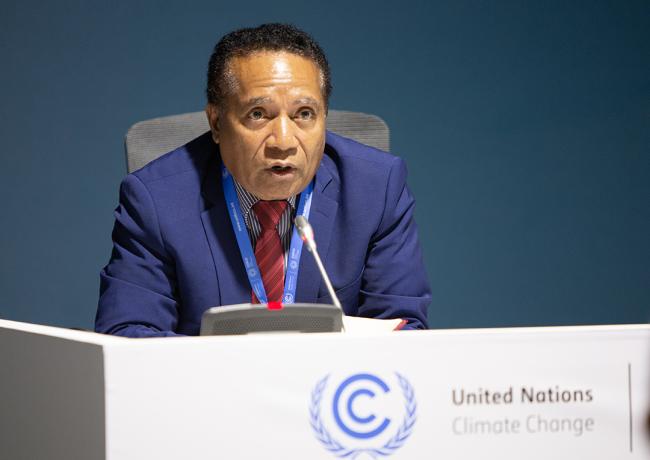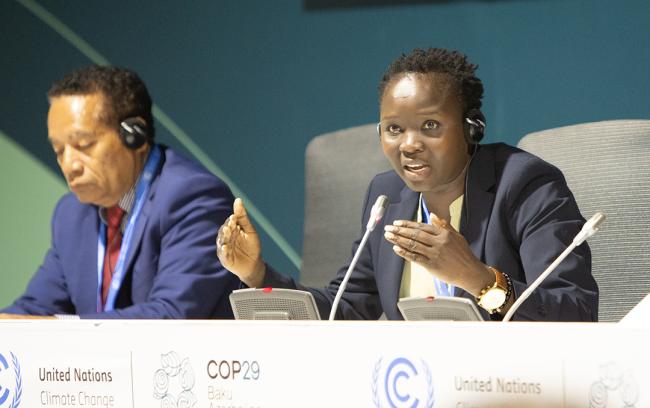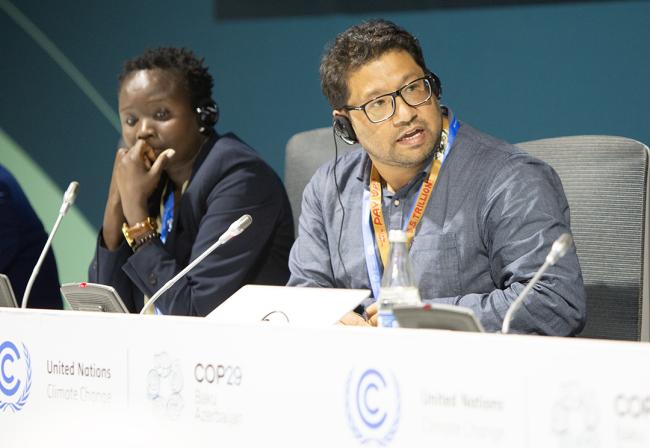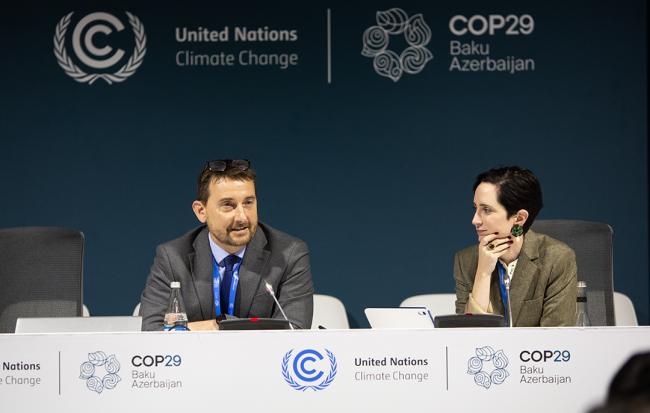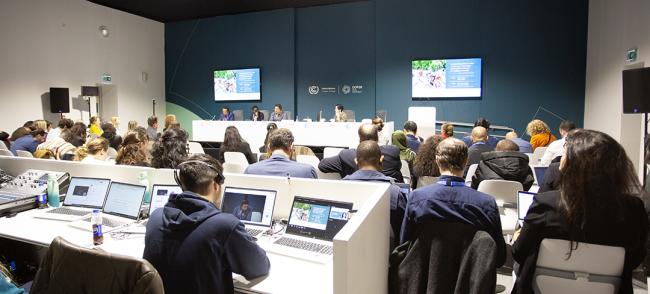When communities are threatened by fragility and conflict, the impacts of climate change are only magnified, degrading food systems that are essential for basic human survival. This event showcased on-the-ground challenges and solutions for recovering from the compounding shocks of climate change, fragility, and conflict, and building long-term resilience and adaptive capacity.
Lisa Doughten, OCHA, opened the event by stressing the increasing frequency and severity of climate-related shocks, which hit fragile and conflict regions the hardest. Yet relatively small amounts of global adaptation funding go to these countries. Doughten stressed the need for long-term investments and multi-sectoral collaboration to support communities to manage risk and emerge from cycles of climate shocks.
Avinash Persaud, IDB, gave opening remarks focusing on the need for a structured approach on finance, stressing that there are existing financial mechanisms that must be broadened and deepened. What is needed, he added, is the political will to enhance these structural mechanisms for delivering finance that is targeted for particular needs arising from the intersection of climate change, fragility, and conflict.
Moderator Kate Warren, Executive Vice-President and Executive Editor, Devex, set the scene for the two panel discussions by stressing the need for concrete solutions and finance strategies, which require collaboration between humanitarian, development, and climate action sectors.
In a first panel on effective climate solutions, stakeholders from civil society, government, and the UN stressed how local communities are taking the lead in building resilience, with support for accessing finance and developing systems to anticipate and adapt to climate shocks.
Loretta Hieber-Girardet, UNDRR, underscored that developing early warning systems can be an “entry point” for longer-term resilience building in fragile contexts. Hieber-Girardet offered many examples of such community-based action, including: early warning systems for drought in Somalia; use of WhatsApp and Telegram for disseminating flood alerts in Syria; microfinance solutions in Haiti; and community mediation programs for disputes over natural resources in Myanmar.
Gunsham Seeborun, President of F.A.L.C.O.N. Association, highlighted local knowledge and low-technology farming solutions that are flexible, empowering, and sustainable techniques. He emphasized that farmers are working to improve value chains, reduce waste, and boost local markets, and that microfinancing can help build safety nets. He also stressed the need to train youths who will be future farmers.
Ketsia Passou, Founder, Fania Association and UNICEF’s Youth Advocate, DRC, offered the example of youth planting thousands of trees to replace those that have been harvested, noting that access to information about climate and environment is essential.
Finishing the first panel, Hieber-Girardet agreed that solutions must be designed at the community level through decentralized, participatory processes, and that these processes need to be inclusive of women and youths. Seeborun urged science-based solutions for agriculture, such as seeds requiring less fertilizer and generating more income.
In a second panel on leveraging climate finance in fragile contexts, Stephanie Speck, GCF, stressed the need for both quantity and quality, namely “who delivers it, who gets it, who asks for it” in climate finance. She described changes in GCF strategy, including moving from project funding to systemic financing and prioritizing community-led action to put “the vulnerable in charge of their own destinies.”
Paul Gulleik Larsen, Ministry of Foreign Affairs, Norway, speaking from the perspective of a donor, said the situation for both climate and humanitarian funding is worsening, noting the ongoing wars in Ukraine and Gaza. Stressing humanitarian agencies as “the best coordinated part of the whole UN system,” he called for these to be better funded, underscoring worrying gaps in the financial needs outlined in the Global Humanitarian Overview 2024.
Adão Soares Barbosa, Special Envoy for Climate Affairs, Timor-Leste, outlined challenges faced by vulnerable countries to access finance, pointing to: insufficient capacity to develop funding proposals locally; administrative burdens and hurdles; and difficulties in communicating the urgency of the overlapping crises of climate and security to funding agencies.
Grace Dorong, Founder and Executive Director, Roots of Generation, emphasized the urgent need for fast, accessible, and community-driven support for displaced populations, who often face multiple displacements and delays in critical aid. Highlighting the inefficiency of bureaucratic systems, she shared an example of an 18-hour delay for a rescue team during a crisis. She advocated for blended financing and local, community-engaged approaches to ensure resources reach affected populations effectively.
Prabin Man Singh, Pakriti Resources Centre, highlighted the need for innovative financing to address funding gaps, noting that while economies with developed capital markets and private sector readiness can generate such financing, these conditions are often absent in vulnerable countries. He added it is challenging to attract private capital for adaptation projects, and called for stronger engagement from Multilateral Development Banks in promoting innovative financing for adaptation.
In a second round of interventions, Barbosa emphasized the need for the next High-level Dialogue on Coherence and Complementarity for responding to loss and damage to prioritize access modalities, direct access, country ownership, and rapid disbursement of funds to support grassroots activities with affected communities. Dorong called for consulting displaced communities affected by the climate crisis on their needs, as politicians in conflict-ridden areas will tend to focus on security issues. Man Singh called for more decentralized attribution and management of funding, noting these are better placed to coordinate with civil society and to respond to increasingly-frequent climate disasters than a single central authority.
Closing the event, Gernot Laganda, WFP, noted how the event debunked multiple myths about climate action and finance in conflict-affected countries: a) rather than climate action finance being too difficult in these countries, communities are implementing these solutions; b) rather than finance being poorly spent in these countries, it goes a long way when it is put in the hands of the most vulnerable people, who are “the best custodians of climate finance”; and c) rather than dealing with other issues first, such as conflict and economic problems, dealing with climate change impacts can help address conflict and economic shocks.
Organizers: WFP, OCHA, UNICEF, UNDRR, and the Food and Agriculture Organization of the United Nations (FAO)
Contact: Amelia Stewart I amelia.stewart@wfp.org
Website: https://www.wfp.org/climate-action
To receive free coverage of global environmental events delivered to your inbox, subscribe to the ENB Update newsletter.
All ENB photos are free to use with attribution. For 2024 UN Climate Change Conference Baku - Side Events , please use: Photo by IISD/ENB | Angeles Estrada Vigil
